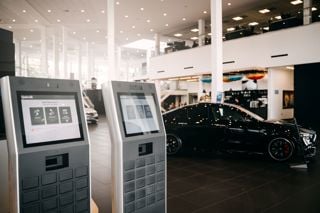The problem of vehicle clocking is one the rise with one-in-14 cars on UK roads showing “mileage discrepancies”, according to research carried out by Cap HPI.
The proportion of affected cars has risen from one-in-16 in 2017 and one-in-20 cars in 2014, an increase of nearly a third (30%) in just five years – costing motorists over £800 million every year.
HPI estimates that 1 in 3 cars that it checks every year has a hidden history.
Barry Shorto, head of industry relations at HPI, said: “Clocking and mileage fraud is a problem that refuses to go away and continues to get worse.
“Used car buyers now have a one-in-14 chance of purchasing a vehicle with a mileage discrepancy which is extremely concerning.
“Criminals are increasingly using more advanced technology to make it easier for them to clock vehicles and cover their tracks.”
Shorto added: “The continued development of technologies to alter digital odometers, easy access to this technology via the internet and similarly, the ease of access to mileage adjustment services online, some of whom will behave legitimately, others less so, are all exacerbating the trend.
“The increase in mileage-related finance arrangements such as PCP and PCH may also be a contributing factor as motorists look to avoid costly penalties for exceeding mileage allowances.”
It is illegal to sell a clocked car without declaring its genuine mileage, but the act of altering the car’s odometer is not an offence.
The illegal practice of clocking takes place when drivers look to deliberately defraud second-hand car buyers when the vehicle is sold on.
A HPI Check gives an insight into more than 80 valuable data points about a vehicle’s history, identifying issues such as any outstanding finance, safety recalls and checks to see if it’s ever been stolen or a classified as an insurance write-off.
In 2018, over 28 million HPI Checks were carried out on UK vehicles.
The HPI Check also includes a mileage check against the National Mileage Register as standard, now with over 200 million mileage readings.
Shorto said: “It can be almost impossible to tell a clocked vehicle just by looking at it, which makes a vehicle history check an even more vital form of protection for buyers.”



















Login to comment
Comments
No comments have been made yet.